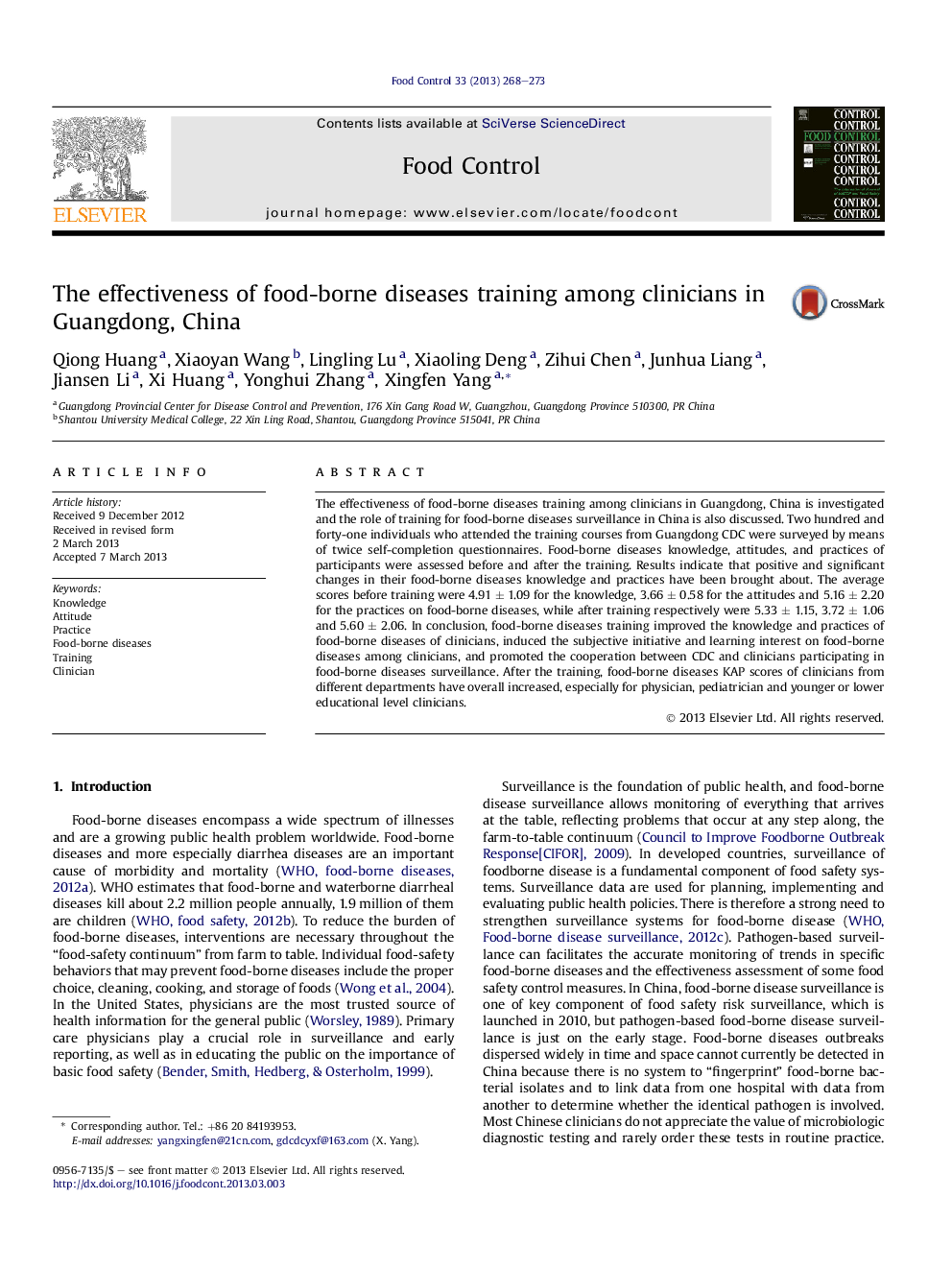| Article ID | Journal | Published Year | Pages | File Type |
|---|---|---|---|---|
| 6392532 | Food Control | 2013 | 6 Pages |
Abstract
The effectiveness of food-borne diseases training among clinicians in Guangdong, China is investigated and the role of training for food-borne diseases surveillance in China is also discussed. Two hundred and forty-one individuals who attended the training courses from Guangdong CDC were surveyed by means of twice self-completion questionnaires. Food-borne diseases knowledge, attitudes, and practices of participants were assessed before and after the training. Results indicate that positive and significant changes in their food-borne diseases knowledge and practices have been brought about. The average scores before training were 4.91 ± 1.09 for the knowledge, 3.66 ± 0.58 for the attitudes and 5.16 ± 2.20 for the practices on food-borne diseases, while after training respectively were 5.33 ± 1.15, 3.72 ± 1.06 and 5.60 ± 2.06. In conclusion, food-borne diseases training improved the knowledge and practices of food-borne diseases of clinicians, induced the subjective initiative and learning interest on food-borne diseases among clinicians, and promoted the cooperation between CDC and clinicians participating in food-borne diseases surveillance. After the training, food-borne diseases KAP scores of clinicians from different departments have overall increased, especially for physician, pediatrician and younger or lower educational level clinicians.
Related Topics
Life Sciences
Agricultural and Biological Sciences
Food Science
Authors
Qiong Huang, Xiaoyan Wang, Lingling Lu, Xiaoling Deng, Zihui Chen, Junhua Liang, Jiansen Li, Xi Huang, Yonghui Zhang, Xingfen Yang,
